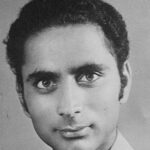In 1969, a pivotal moment occurred in the life of Charles Bukowski when he received a life-changing offer from John Martin, the editor of Black Sparrow. At that time, Bukowski was working as a postman, struggling to make ends meet while nurturing his passion for writing. However, everything was about to change.
John offered Bukowski a monthly stipend of $100 for the rest of his life, an offer that carried immense significance. This generous gesture had the power to liberate Bukowski from the daily grind of survival and provide him with the freedom to fully immerse himself in the world of literature and pursue his artistic calling.
The importance of such an offer cannot be overstated. For an artist, the struggle for basic necessities like food, clothing, and shelter can be a constant distraction, diverting their focus and energy away from the creative process. By providing Bukowski with financial stability,
John Martin allowed him to unshackle himself from the burdens of survival and embrace the boundless horizons of his creativity.
Two years later, Bukowski fulfilled his promise, delivering his debut novel, “Post Office,” to Black Sparrow. This raw and honest work captured the essence of his life experiences and offered readers a glimpse into the depths of human vulnerability.
To me, its creation symbolized the transformative powers of unwavering belief and support that allowed Bukowski’s authentic self to flourish.
In the literary realm, the private correspondence between writers and their publishers often reveals lesser-known aspects of their personalities. Such is the case with Charles Bukowski, whose emotionally charged letter to John Martin in 1986 shines a light on a deeply sentimental side of the acclaimed author.
In this blog post, we dive into the profound contents of Bukowski’s letter, unearthing the depths of his emotions and offering a unique perspective on his complex persona.
Bukowski’s Thank-You Letter to John Martin:―
August 12, 1986
Hello John:
Thanks for the good letter. I don’t think it hurts, sometimes, to remember where you came from. You know the places where I came from. Even the people who try to write about that or make films about it, they don’t get it right. They call it “9 to 5.” It’s never 9 to 5, there’s no free lunch break at those places, in fact, at many of them in order to keep your job you don’t take lunch. Then there’s overtime and the books never seem to get the overtime right and if you complain about that, there’s another sucker to take your place.
You know my old saying, “Slavery was never abolished, it was only extended to include all the colors.”
And what hurts is the steadily diminishing humanity of those fighting to hold jobs they don’t want but fear the alternative worse. People simply empty out. They are bodies with fearful and obedient minds. The color leaves the eye. The voice becomes ugly. And the body. The hair. The fingernails. The shoes. Everything does.
As a young man, I could not believe that people could give their lives over to those conditions. As an old man, I still can’t believe it. What do they do it for? Sex? TV? An automobile on monthly payments? Or children? Children who are just going to do the same things that they did?
Early on, when I was quite young and going from job to job I was foolish enough to sometimes speak to my fellow workers: “Hey, the boss can come in here at any moment and lay all of us off, just like that, don’t you realize that?”
They would just look at me. I was posing something that they didn’t want to enter their minds.
Now in industry, there are vast layoffs (steel mills dead, technical changes in other factors of the work place). They are layed off by the hundreds of thousands and their faces are stunned:
“I put in 35 years…”
“It ain’t right…”
“I don’t know what to do…”
They never pay the slaves enough so they can get free, just enough so they can stay alive and come back to work. I could see all this. Why couldn’t they? I figured the park bench was just as good or being a barfly was just as good. Why not get there first before they put me there? Why wait?
I just wrote in disgust against it all, it was a relief to get the shit out of my system. And now that I’m here, a so-called professional writer, after giving the first 50 years away, I’ve found out that there are other disgusts beyond the system.
I remember once, working as a packer in this lighting fixture company, one of the packers suddenly said: “I’ll never be free!”
One of the bosses was walking by (his name was Morrie) and he let out this delicious cackle of a laugh, enjoying the fact that this fellow was trapped for life.
So, the luck I finally had in getting out of those places, no matter how long it took, has given me a kind of joy, the jolly joy of the miracle. I now write from an old mind and an old body, long beyond the time when most men would ever think of continuing such a thing, but since I started so late I owe it to myself to continue, and when the words begin to falter and I must be helped up stairways and I can no longer tell a bluebird from a paperclip, I still feel that something in me is going to remember (no matter how far I’m gone) how I’ve come through the murder and the mess and the moil, to at least a generous way to die.
To not to have entirely wasted one’s life seems to be a worthy accomplishment, if only for myself.
yr boy,
Hank
If you enjoyed reading Bukowski’s letter, be sure to check out my other blog posts pondering the profound introspection of “Bukowski’s Bluebird ― A Poignant Exploration of Human Vulnerability,” Kafka’s letter to his father, and the existential dilemmas of Ivan in Dostoevsky’s “The Brothers Karamazov,” Each of these captivating insights invites you to uncover the hidden layers of humanity within these literary giants.
The Best Books: Recommended Reading Lists
1. Best Books That Teach the Art of Living a HAPPIER LIFE
2. Best Books on STOCK MARKET & INVESTING
3. Best Books To Help You Find HOPE During Your Darkest of Times
4. Best Books on Learning & Mastering SONGWRITING
5. Must-Read Books on Punjab’s History and Culture
6. Best Books That Talk about SOLOGAMY
7. Books Chris McCandless Took On His Journey ― INTO THE WILD
8. 7 Alan Watts Books That Talk About Human Existence
9. From PhD To Industry: 4 Best Books To Aid Your Transition
10. Inspiring Ambitions: Autobiographies of Cricketers Who Made It Big
11. Best Books Debating the Existence of Free Will
12. Books To Understand Blockchain Technology
That’s all we have for today.
Thanks a lot for tuning in to HappinessDhaba. Do let me know your views on this in the comment section.
Signing off with my favourite words
Zindagi Zindabad!
Author Profile

Recent Posts
 The Punjabi LiteratureJuly 14, 2025Paash on the Death of Dreams ― Sab Ton Khatarnak
The Punjabi LiteratureJuly 14, 2025Paash on the Death of Dreams ― Sab Ton Khatarnak Blog PostsApril 6, 2025Rebuilding Identity After The Self Falls Apart | by Jasmeet
Blog PostsApril 6, 2025Rebuilding Identity After The Self Falls Apart | by Jasmeet Book Summaries & LessonsFebruary 6, 2025BURN IT ALL: Kafka’s Legacy and the Friendship That Saved It
Book Summaries & LessonsFebruary 6, 2025BURN IT ALL: Kafka’s Legacy and the Friendship That Saved It Life Through SongsJanuary 20, 20259 Best Punjabi Heer Ranjha Songs ― The Modern Playlist
Life Through SongsJanuary 20, 20259 Best Punjabi Heer Ranjha Songs ― The Modern Playlist







